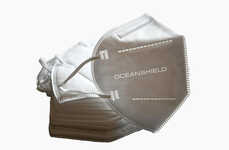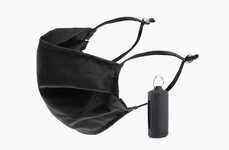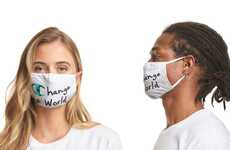



Facial coverings are made to be biodegradable
Trend - With the increased use of PPE around the world in the last several months, specifically protective face masks, waste and pollution has risen. Some brands are aiming to mitigate this issue by releasing biodegradable masks that can be safely disposed of when they're no longer necessary.
Insight - As consumers become more aware of climate change and its consequences around the world, they're looking for ways to reduce their personal impact on the environment. These consumers turn to brands that aid in the process of being more eco-friendly, particularly in necessary purchases.
Insight - As consumers become more aware of climate change and its consequences around the world, they're looking for ways to reduce their personal impact on the environment. These consumers turn to brands that aid in the process of being more eco-friendly, particularly in necessary purchases.
Workshop Question - How is your brand prioritizing sustainability?
Trend Themes
1. Biodegradable PPE - As consumers become more eco-conscious, there is a growing trend towards biodegradable personal protective equipment (PPE) that is made from unconventional materials and does not contribute to environmental pollution.
2. Plant-based Face Masks - The trend towards plant-based face masks is becoming increasingly popular as consumers seek eco-friendly, biodegradable options for personal protection.
3. Innovative Materials - Brands are incorporating innovative, unconventional materials such as coffee yarn, food waste, and rice paper into the construction of face masks, creating disruptive innovation opportunities in the development of sustainable and eco-friendly PPE.
Industry Implications
1. Textile Industry - The textile industry can capitalize on the trend towards biodegradable PPE by developing eco-friendly fabric and materials that can be used in the manufacture of face masks and other protective equipment.
2. Sustainability Industry - The sustainability industry can leverage the trend towards plant-based and biodegradable face masks by promoting and expanding their availability to a wider audience.
3. Environmental Industry - The environmental industry can find opportunities in the trend towards innovative materials for face masks made from coffee yarn, food waste, and rice paper by exploring the potential for these materials in other sustainable products.



































